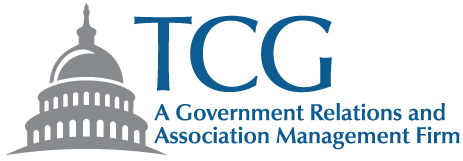Governor Lamont Forms Working Group To Recommend Options for a Comprehensive System of Ranked-Choice Voting in Primaries and Municipal Elections
(HARTFORD, CT) – Governor Ned Lamont today announced that he is establishing a working group consisting of members representing various political affiliations and tasking them with exploring options and developing a comprehensive legislative proposal to create a system that enables municipalities and political parties in Connecticut with the ability to use ranked-choice voting in caucuses, conventions, primaries, and certain municipal elections.
Current state law does not enable the use of ranked-choice voting in any primaries or elections. The governor is asking the group – which will be known as the Governor’s Working Group on Ranked-Choice Voting – to develop a report of recommendations by the end of the year so that its findings can be considered by the Connecticut General Assembly during the 2025 regular session.
“Ranked-choice voting is an increasingly popular procedure among various political parties that enables voters to have all their preferences fully considered when choosing candidates for elected office,” Governor Lamont said. “It has been used with success in other states throughout the U.S. for many years, and there is a growing consensus in Connecticut that enacting this system here will benefit our voters. I want this multipartisan working group to review how those systems operate, ascertain best practices, and collaboratively determine the best way that it can be implemented in Connecticut so that our municipalities and political parties have this option available to them.”
Governor Lamont is appointing State Senator Cathy Osten, a Democrat, and State Senator Tony Hwang, a Republican, to serve as its co-chairs.
“Ranked-choice voting is gaining in popularity across the country, but its pros and cons really haven’t been explored in Connecticut,” Senator Osten said. “My hope is that this working group will collect the information necessary to make specific recommendations and hopefully improve voter turnout in Connecticut.”
“I want to thank Governor Lamont for initiating this ranked-choice voting working group,” Senator Hwang said. “Through this bipartisan process, we hope to learn how ranked-choice voting can give the voters of Connecticut a stronger and more representative voice in their local elections. Voters across the state are calling for an electoral process that allows for more viewpoints, without feeling like voting for a third party is a throwaway. I am looking forward to some productive discussions coming out of the working group to explore how ranked-choice voting can best be implemented in Connecticut. The ultimate goal is more electoral participation that reflects voters’ representative will and democratic governance.”
There are 29 states that use ranked-choice voting in certain primaries and elections, and in recent years its use was implemented broadly and successfully in Maine and Alaska.
In 2023, legislation drafted by bipartisan co-sponsors was introduced in Connecticut that, among other things, would have given municipalities the option of using ranked-choice voting in municipal elections for single-winner offices and would have given political parties the option of using ranked-choice voting in presidential preference primaries. That bill – Senate Bill 389 – received a public hearing in the Government Administration and Elections Committee, however the committee did not take a vote to advance the bill before its deadline.
The Governor’s Working Group on Ranked-Choice Voting will initially consist of the following members, and its membership may be expanded to include representatives of other major political parties and others, as appropriate:
Co-Chair: State Senator Cathy Osten (D-Sprague)
Co-Chair: State Senator Tony Hwang (R-Fairfield)
Vice Chair: Monte Frank (Attorney at Pullman & Comley, past present of the Connecticut Bar Association, and 2018 candidate for lieutenant governor under the Griebel-Frank for CT Party)
Lt. Governor Susan Bysiewicz or designee
Secretary of the State Stephanie Thomas or designee
State Representative Aundré Bumgardner (D-Groton, Stonington)
State Representative Hilda Santiago (D-Meriden)
Annalisa Stravato (Republican registrar of voters for the Town of Wilton, executive vice president of the Registrar of Voters Association of Connecticut, and former vice chair of the Connecticut Republican Party)
Alexander Russell (Director of the UConn Center for Voting Technology Research)
Dan Rosenthal (Former Democratic first selectman for the Town of Newtown)
Lindsay Farrell (Senior political strategist for the national Working Families Party)
Ann Reed (Vice president of advocacy for the League of Women Voters of Connecticut)
Patricia Spruance (Town clerk for the Town of Windham and president of the Connecticut Town Clerks Association)
Cheri Quickmire (Executive director of Common Cause in Connecticut)
The group is tentatively planning to hold its inaugural meeting on June 14, 2024. Its meetings will be open to the public.
The legislature’s 2025 regular session begins on January 8, 2025.
Twitter: @GovNedLamont
Facebook: Office of Governor Ned Lamont

